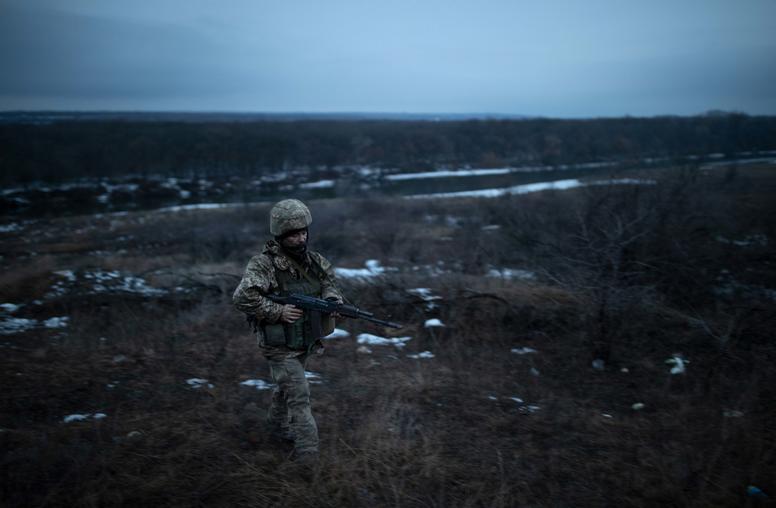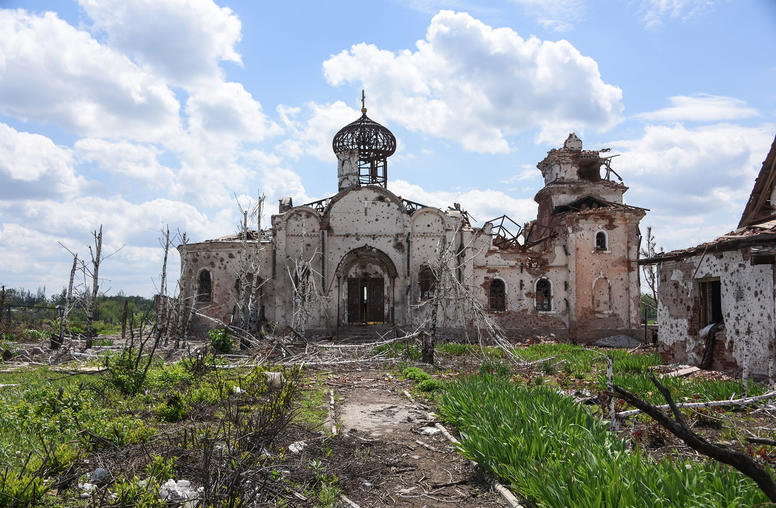 Ukraine
Ukraine
Today, Ukraine is fighting to save its young democracy against an unprovoked and unjustified Russian invasion. Long plagued by corruption and a weak rule of law and traditionally separated by language and religion, Ukrainians have united in defense of their national sovereignty and, with international assistance and support, managed to stifle early Russian military advances. But to stave off Russian aggression in the long term — as well as rebuild in the aftermath — Ukraine will need to maintain this unity. USIP provides analysis and support for policies that can help sustain Ukrainian democracy in the face of Russia’s invasion and facilitate the dialogue and diplomacy that will be required to ultimately defeat it.
Read more about the current situation in Ukraine
Featured Publications

Whither NATO at 75?
NATO marked its 75th anniversary last week at a celebration in Brussels. While Russia’s invasion of Ukraine has injected the alliance with new life and resolve, the 32-member collective security pact is also wrestling with its future in a world of growing great power competition. In 2022, NATO formally identified for the first time China as a challenge to its interests and collective security. As NATO continues to support Ukraine and look to future global challenges, it also has internal issues to address, ranging from individual member defense spending to the problems posed by the need for collective decision-making among 32 members.

Angela Stent on the Terror Attack in Moscow
While ISIS has claimed responsibility for the devastating terror attack in Moscow, Putin has baselessly tried to shift the blame to Ukraine, says USIP’s Angela Stent: “[Putin] wants to use this to increase repression at home … and also to pursue a more aggressive path in Ukraine.”

War and the Church in Ukraine
Vladimir Putin’s war to reverse Ukraine’s independence includes religion. For centuries, the Russian Orthodox Church bolstered Moscow’s rule by wielding ecclesiastical authority over Ukrainian churches. Since early 2019, Ukraine has had a self-governing Orthodox Church of Ukraine. Russia’s invasion has sharpened tensions between it and the rival branch historically linked to Moscow. Any conciliation between them could shrink areas for conflict — and the Kremlin’s ability to stir chaos — in a postwar Ukraine. It would bolster Ukraine’s future stability and reinforce a decline in Russia’s historically massive influence across the Orthodox Christian world. But can Ukrainians make that happen?
Current Projects

The Current Situation in Ukraine
Russia’s massive assault on an independent Ukraine menaces not only Eastern Europe, but the human effort, since World War II, to build global peace through the international rule of law. USIP provides analysis and support for policies that can help sustain the democracy, dialogue and diplomacy that will be required to ultimately defeat this threat.

Religion and Conflict Country Profiles
USIP’s Religion, Peace and Conflict Country Profiles (RPACCs) are concise analytic overviews of the religious landscape in countries at risk of, currently experiencing or recovering from violent conflict. RPACCs are intended to be used primarily by policymakers and practitioners looking to develop rapid familiarity with the nature and status of religion in a given country of interest as well as to understand how religion intersects with conflict and peace dynamics. The RPACC series is an outgrowth of USIP’s previous work on Religious Landscape Mapping in Conflict-Affected States.